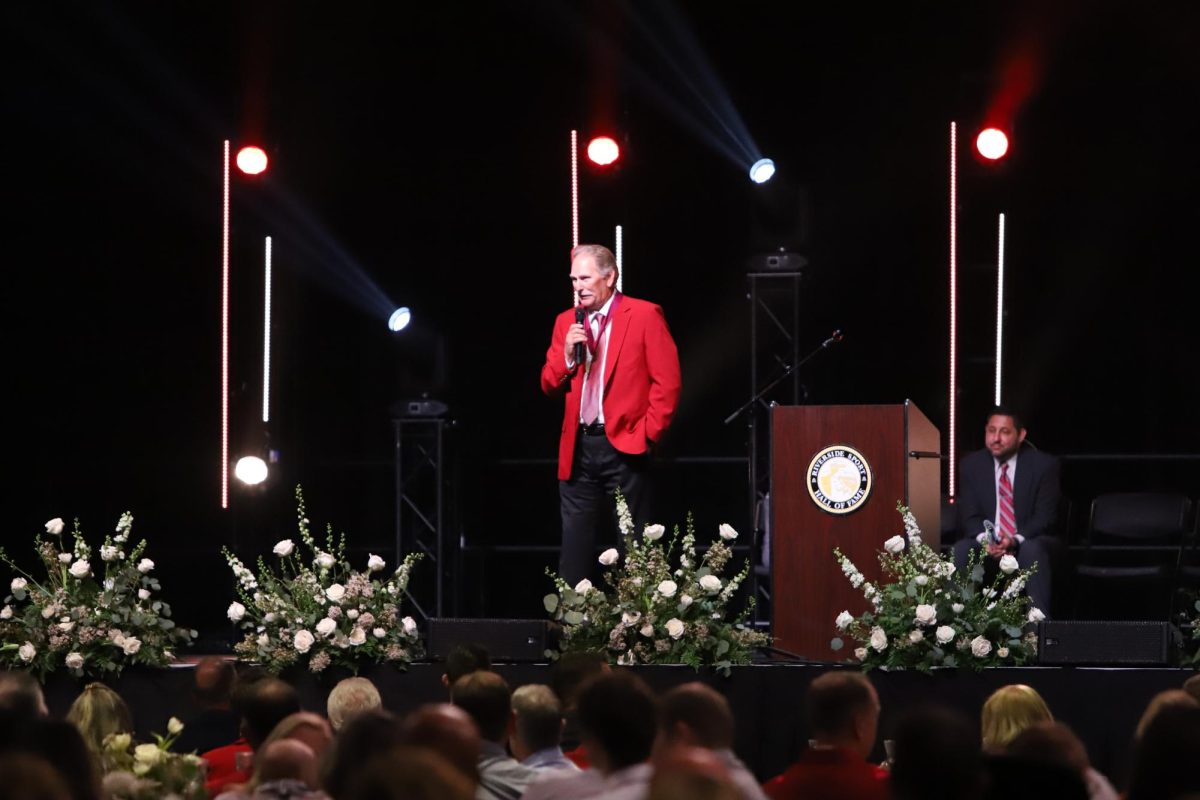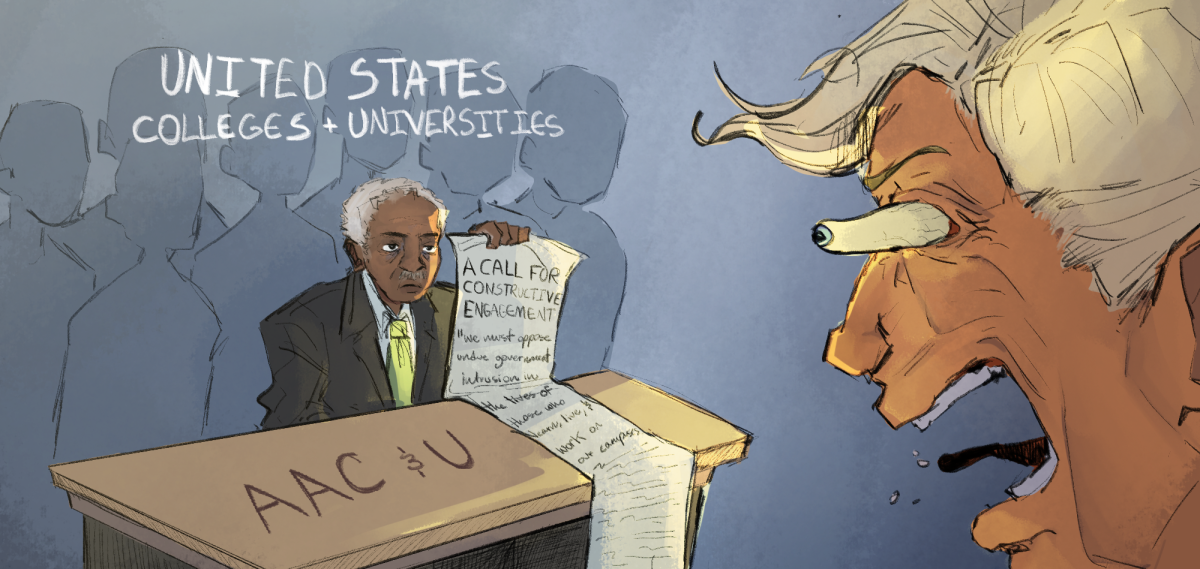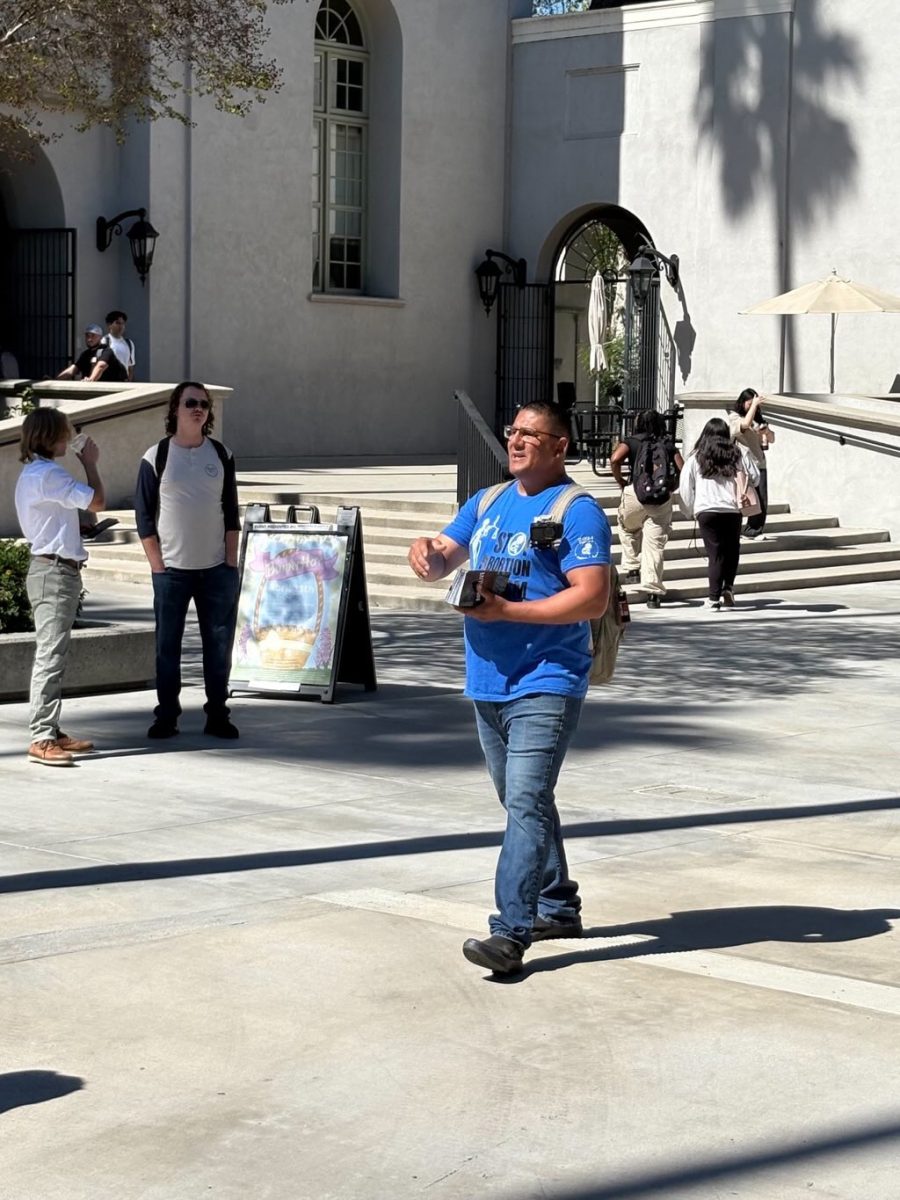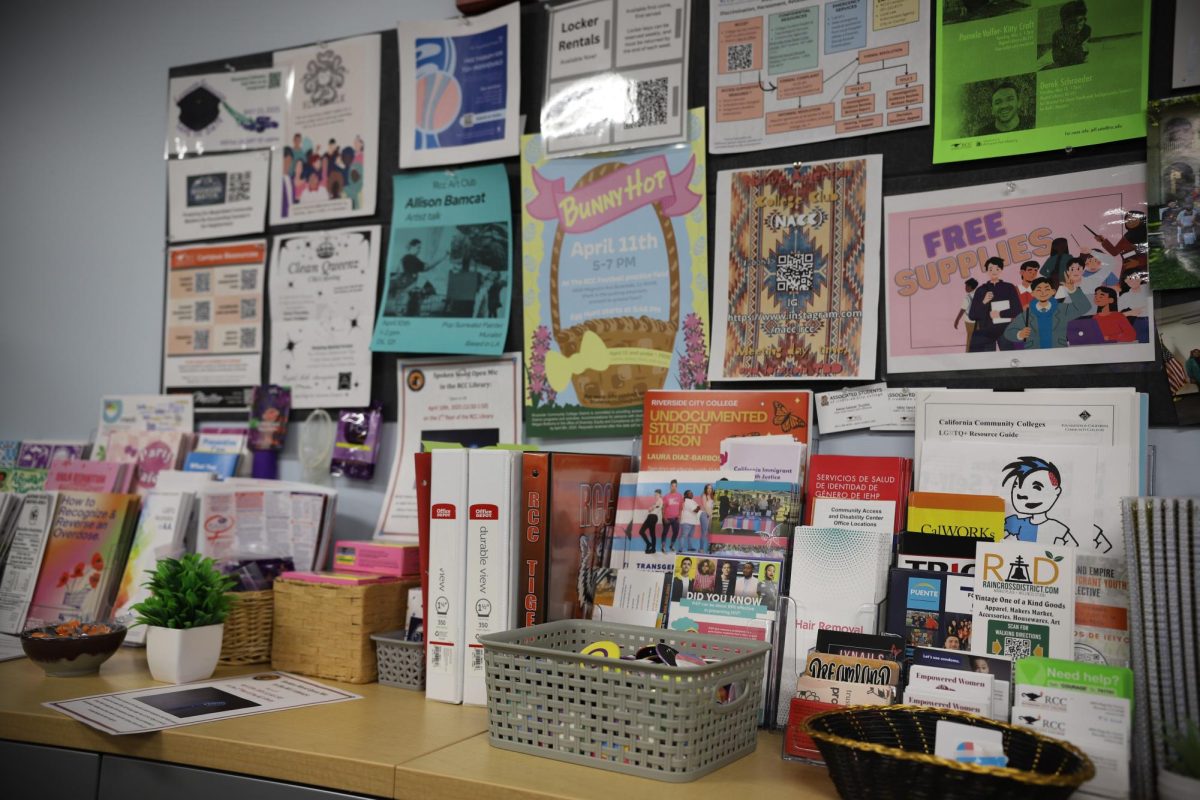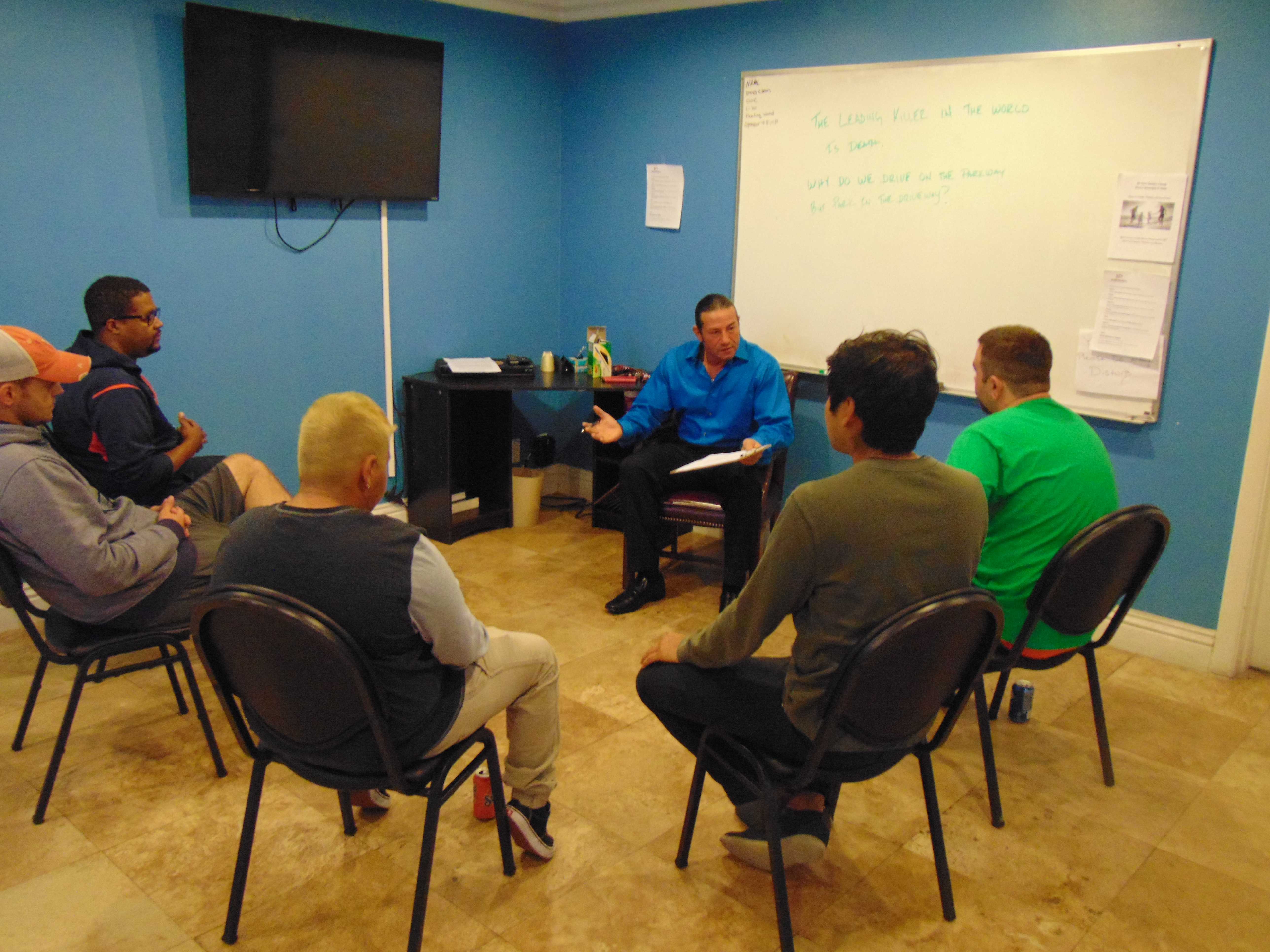
By Erik Galicia
There is a common saying in 12 step programs for those recovering from substance abuse: “You only have to change one thing, and that’s everything.”
Fear and self-doubt seem to be common sentiments among recovering addicts who decide to go back to school. Yet, there are many students at Riverside City College who have overcome the stranglehold of active addiction and are willing to share their experience, strength and hope.
“I had been clean for about two and a half years when I decided to go back to school,” U.S. Army veteran Damon Bradley said. “I needed to further my education because I was never able to follow through with it in my addiction.”
Bradley has been in recovery for seven years and transferred to Brandman University from RCC in 2018. He is working towards a master’s degree in social work and plans to obtain a license for clinical social work, which would allow him to open a private practice.
“I had a fear of going back to school,” Bradley said. “There was doubt. I didn’t know if I would still be able to do it but my recovery has allowed me a better perspective on how I view things. It’s allowed me to respond and process thoughts as opposed to just reacting.”
Bradley chose his field of study because he will be able to relate to clients. He believes that his experience with drugs, alcohol and child abuse will allow his clients to be more vulnerable and open with him.
“My life experience, added to my education, will help me provide clients with a better opportunity in recovery,” Bradley said. “My education will allow me to be of service to others and better their lives as well as my own.”
Bradley advises students to seek out work experience while they are working towards their educational goals.
“I volunteer twice a week at a treatment facility running a group for addicts within their first 30 days of clean time,” Bradley said. “I do this so I can get experience working in a clinical environment because you don’t wanna have a degree with no work experience.”
Paul Leyva, an anthropology major at RCC, first decided to go back to school to appease the demands of probation and the CalFresh program after his release from incarceration. Today he is working on transferring to UC Riverside and looking to work as a mentor.
“I couldn’t go back to what I was doing before,” Leyva said. “I went back to school and I fell in love with it. I love to learn.”
“I want to eventually be a college professor or go into a community and solve a social problem,” Leyva said.
Leyva also expressed the struggle with fear and anxiety that comes with going back to school.
“I get mental blocks, I get scared,” Leyva said. “Cramming before a test can be a trigger to want to use.”
Leyva urges students who might be in the same situation to be persistent and “push, push, push.”
“Be on the grind and don’t give up,” Leyva said. “If you’re getting a D or an F in a class, don’t just drop it. Stay in the class till the end and your chances of passing when you take it again will really increase.”
“I’m no longer a gangster, no longer a convict,” Leyva said. “I want to help the younger homies. I want to inspire people. Today I can take pride in ethnic studies instead of the gang culture.”
Paul Leyva’s cousin, Daniel Leyva, was nine months clean when he decided to enroll in RCC’s automotive body repair certificate program.
“School showed me how to stay focused,” Daniel Leyva said. “It got me to focus on my goals. I thought, ‘If I can stay clean, I can get through school.’”
Daniel Leyva said he experienced difficulties with his studies at first.
“The reading and writing and just getting back into it was kinda hard,” Daniel Leyva said. “But the more I studied, the easier it got.”
The students all shared the stress of financial hardship that many students face.
“It’s been a humbling experience,” Bradley said. “I’ve accrued some debt and my mind wants to make money. But my recovery has allowed me patience with that because I know it will pay off in a few years.”
The Leyvas urge students to focus on themselves and their future, which is also an essential part of recovery.
“You have to be prepared because you’re probably not gonna be bringing in much money to provide while you’re in school,” Paul Leyva said. “This is an investment for the future.”
“You have to put yourself first,” Daniel Leyva said. “How are you gonna take care of your family without a career? Your kids will look up to you, your family will respect you. As for me, my self-esteem and self-respect have increased since I went back to school. My family trusts me because they see me doing something positive.”
Bradley chose his field of study because he will be able to relate to clients. He believes that his experience with drugs, alcohol and child abuse will allow his clients to be more vulnerable and open with him.
“My life experience, added to my education, will help me provide clients with a better opportunity in recovery,” Bradley said. “My education will allow me to be of service to others and better their lives as well as my own.”
Bradley advises students to seek out work experience while they are working towards their educational goals.
“I volunteer twice a week at a treatment facility running a group for addicts within their first 30 days of clean time,” Bradley said. “I do this so I can get experience working in a clinical environment because you don’t wanna have a degree with no work experience.”
Paul Leyva, an anthropology major at RCC, first decided to go back to school to appease the demands of probation and the CalFresh program after his release from incarceration. Today he is working on transferring to UC Riverside and looking to work as a mentor.
“I couldn’t go back to what I was doing before,” Leyva said. “I went back to school and I fell in love with it. I love to learn.”
“I want to eventually be a college professor or go into a community and solve a social problem,” Leyva said.
Leyva also expressed the struggle with fear and anxiety that comes with going back to school.
“I get mental blocks, I get scared,” Leyva said. “Cramming before a test can be a trigger to want to use.”
Leyva urges students who might be in the same situation to be persistent and “push, push, push.”
“Be on the grind and don’t give up,” Leyva said. “If you’re getting a D or an F in a class, don’t just drop it. Stay in the class till the end and your chances of passing when you take it again will really increase.”
“I’m no longer a gangster, no longer a convict,” Leyva said. “I want to help the younger homies. I want to inspire people. Today I can take pride in ethnic studies instead of the gang culture.”
Paul Leyva’s cousin, Daniel Leyva, was nine months clean when he decided to enroll in RCC’s automotive body repair certificate program.
“School showed me how to stay focused,” Daniel Leyva said. “It got me to focus on my goals. I thought, ‘If I can stay clean, I can get through school.’”
Daniel Leyva said he experienced difficulties with his studies at first.
“The reading and writing and just getting back into it was kinda hard,” Daniel Leyva said. “But the more I studied, the easier it got.”
The students all shared the stress of financial hardship that many students face.
“It’s been a humbling experience,” Bradley said. “I’ve accrued some debt and my mind wants to make money. But my recovery has allowed me patience with that because I know it will pay off in a few years.”
The Leyvas urge students to focus on themselves and their future, which is also an essential part of recovery.
“You have to be prepared because you’re probably not gonna be bringing in much money to provide while you’re in school,” Paul Leyva said. “This is an investment for the future.”
“You have to put yourself first,” Daniel Leyva said. “How are you gonna take care of your family without a career? Your kids will look up to you, your family will respect you. As for me, my self-esteem and self-respect have increased since I went back to school. My family trusts me because they see me doing something positive.”

